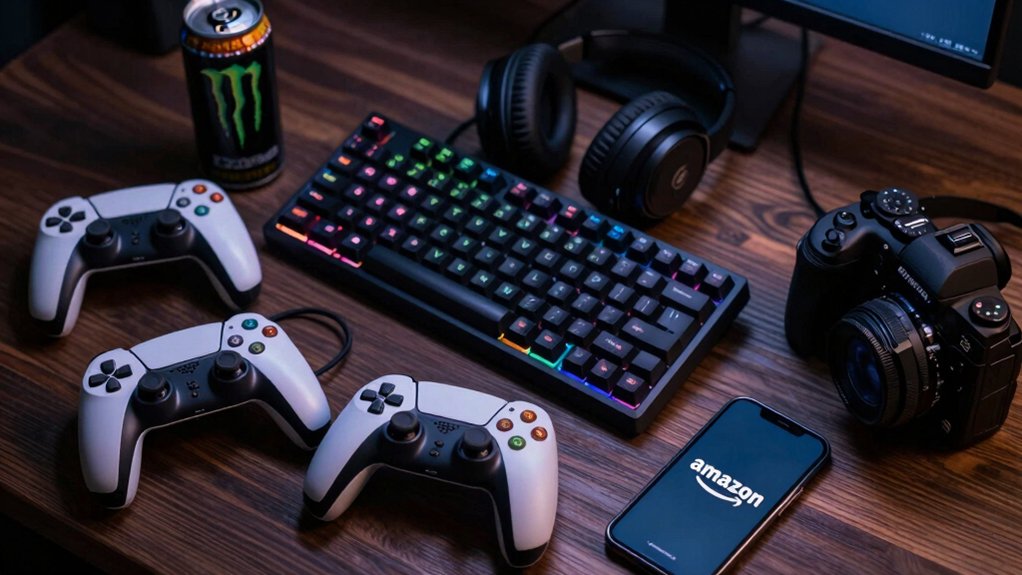Do you want to improve your academic performance? Have you considered joining or leading a group study session?
Group study has many benefits, from providing a support system to creating a more engaging learning experience.

In this article, we’ll look at the benefits and strategies for effective group study, challenges to consider, and ways to assess the impact of group study on academic performance.
Benefits of Group Study Sessions To Improve Academic Performance
You can reap many benefits from group study sessions. Forming a study group with peers facilitates peer networking, which can help you understand the material better and provide mutual support. In addition, it can help you manage your time more efficiently.
Instead of trying to figure out the material on your own, you can split up the material and assign each person a chapter or section to review.
This will make it easier to cover the entire course material in the allotted time. Furthermore, group study sessions can be more entertaining than studying alone, which can help you stay focused and motivated.
Group study sessions can also help with difficult concepts or problems. You can discuss ideas with your peers and benefit from their expertise and knowledge. If one person is unsure of a concept, the other group members can help explain it better.
Group study sessions also provide a forum for regular practice. You can quiz each other on the material and test different problem-solving techniques. This can help you develop a better understanding of the material.
Finally, having someone to keep you accountable for studying can be a great motivator. You can set a schedule and check in with each other to make sure you’re staying on track.
Group study sessions also provide a great opportunity for socializing and building friendships. Working together and having a shared experience can create a sense of camaraderie and make studying more enjoyable.
Strategies for Effectively Facilitating Group Study Sessions

By effectively managing your group study sessions, you can maximize the potential of the group to improve academic performance. Here are some strategies to help you get the most out of your study group:
- Establish Goals:
- Clearly explain the objectives for the session.
- Make sure everyone is on the same page and knows what’s expected of them.
- Set achievable goals for the session and plan for how to reach them.
- Share Resources:
- Create an environment where everyone can openly share their resources and knowledge.
- Encourage members to bring in materials that can help the group.
- Make sure everyone is contributing to the discussion and no one is being left out.
- Foster Collaboration:
- Make sure everyone is comfortable speaking up and participating.
- Use brainstorming and problem-solving techniques to ensure everyone is contributing.
- Provide a space for constructive criticism and feedback.
Overcoming Challenges of Group Study Sessions
Frequently and often, you’ll need to overcome the challenges of group study sessions to improve academic performance.
Building trust between group members is essential to successfully tackle the task at hand. Working together in a team environment requires each person to be reliable and contribute to the learning process.
Establishing a relationship of trust can be done by having the group members share their experiences, set achievable goals, and have respect for each other.
Setting goals is another way to overcome the challenges of group study sessions. When everyone in the group is on the same page and has a clear understanding of the objectives, it will help to ensure the success of the study session.
Setting realistic goals that are achievable is important in order to keep everyone motivated and engaged. Additionally, having a timeline of when the goals should be achieved helps to ensure that the group is on track and meeting deadlines.
Above all, communication is key when it comes to overcoming the challenges of group study sessions. Keeping the lines of communication open helps to foster a cooperative environment that focuses on learning.
Scheduling regular meetings to discuss progress and any issues that arise can help the group stay on track and make sure that the goals are being met.
Encouraging Collaboration and Engagement With Group Study
Regularly and carefully, you can encourage collaboration and engagement with group study. Here are some tips on how to do just that:
- Structure the Session:
- Establish ground rules that emphasize respect and collaboration.
- Schedule regular meetings and assign tasks ahead of time.
- Encourage each person to contribute to the discussion.
- Create a Learning Environment:
- Create a comfortable learning space with minimal distractions.
- Encourage peer instruction by having group members explain concepts to one another.
- Utilize active learning strategies such as game-based learning.
- Foster Connection:
- Get to know each group member on a personal level.
- Ask questions to engage each member and create a sense of community.
- Celebrate successes and provide support when needed.
Assessing the Impact of Group Study Sessions on Academic Performance

By assessing the impact of group study sessions on academic performance, you can determine how effective they are for improving your grades. One way to evaluate their success is to track the progress of those who take part in group sessions.
Another useful way to assess whether group study sessions are helping is to compare the grades of students who participate in group study sessions with those who do not.
Additionally, you can look at whether peer mentoring during these sessions is helping students with their time management.
It is also important to consider the size of the group and the type of activities they are engaging in. Too many students in a group can be distracting and lead to a less productive session.
On the other hand, a smaller group of students who are engaging in meaningful activities can be beneficial. The type of activities that the group engages in can also affect the overall success of the sessions. Therefore, it’s important to ensure that the activities chosen are appropriate for the level of the students and encourage active participation.
Tips for Organizing Effective Group Study Sessions
Organizing a group study session can be a game-changer in your academic journey, but to ensure it’s productive, it’s crucial to approach these gatherings with a clear plan. Here are some tips to help you organize study sessions that will truly benefit all participants:
1. Choose the Right Group Members:
- Look for classmates who are serious about their studies and share a similar academic drive.
- Aim for a diverse group that can contribute different strengths and perspectives.
- Keep the group size manageable – typically, 4-6 members allow for a mix of ideas without becoming unwieldy.
2. Set Clear Objectives:
- Determine what you want to achieve in each session, whether it’s understanding a complex topic or reviewing for an exam.
- Share the goals with all members before meeting, so they come prepared.
3. Create a Structured Agenda:
- Plan the flow of the study session. Allocate time for reviewing materials, group discussion, practice problems, etc.
- Stay on task by assigning time limits to each part of the agenda.
4. Designate Roles:
- Assign roles, such as a moderator to keep the discussion on track, a note-taker, or a timekeeper to ensure the session runs efficiently.
5. Select a Conducive Environment:
- Choose a quiet, comfortable, and well-lit space that is conducive to learning and free from distractions.
- Ensure there is enough room for everyone to work and access to necessary resources like whiteboards or outlets.
6. Prepare Materials in Advance:
- Encourage everyone to bring class notes, textbooks, study guides, and any other relevant materials.
- Consider creating shared digital resources such as Google Docs for collaborative note-taking.
7. Foster an Open and Respectful Atmosphere:
- Encourage each member to participate and offer insights without judgment.
- Practice active listening and ensure everyone’s ideas are valued.
8. Incorporate Varied Learning Techniques:
- Use techniques like quizzing each other, creating mind maps, or teaching concepts to the group to reinforce learning.
- Changing up activities keeps the session dynamic and caters to different learning styles.
9. Schedule Regular Meetings and Stick to Them:
- Consistency is key. Try to schedule sessions at regular intervals and well in advance of tests or due dates.
- Commit to the scheduled times as you would to a class or important meeting.
10. Review and Reflect:
- At the end of each session, spend time reviewing what was learned and assess whether the study goals were met.
- Discuss what worked well and what could be improved for future sessions.
By following these tips, your group study sessions can become a powerful tool to enhance learning and improve academic performance. Remember that the core of a successful group study is collaboration, so ensure every session is planned with the intent to maximize the collective effort of the group.
With an emphasis on structure, preparation, and collaboration, students can turn group study sessions into a cornerstone of their academic success.
Frequently Asked Questions [FAQs]
What Is the Optimal Size for a Group Study Session?
The optimal size for a group study session is likely 3-5 people. This allows enough people to collaborate and provide different perspectives, while still being manageable in terms of time management. Additionally, the moderate size of the group can help provide peer pressure to stay on task.
How Can I Ensure My Group Study Session Is Productive?
You can ensure your group study session is productive by staying organized and setting goals. Have a plan for the session and each person’s role. Make sure everyone is on the same page and has the same expectations.
How Does Group Study Compare to Individual Study?
Group study can be more effective than individual study in terms of peer learning and collaborative work. It offers the opportunity to exchange ideas, challenge each other, and learn from one another.
How Can I Ensure All Members of the Group Are Equally Engaged?
You can ensure all members of the group are equally engaged by promoting the sharing of information and encouraging collaborative learning.
What Additional Resources Can I Use to Supplement the Group Study Session?
You can use brainstorming, time management, interaction strategies, accountability partners, and cooperative learning to supplement your group study session. Utilize these resources to ensure everyone is engaged and successful.
Conclusion
Group study sessions can be a great way to improve academic performance, if they’re facilitated properly. By encouraging collaboration, engagement, and open communication, you can make the most of the session and ensure everyone is getting the most out of it.
As long as everyone is held accountable and invested in the session, the results will show in improved academic performance.




Leave a Reply